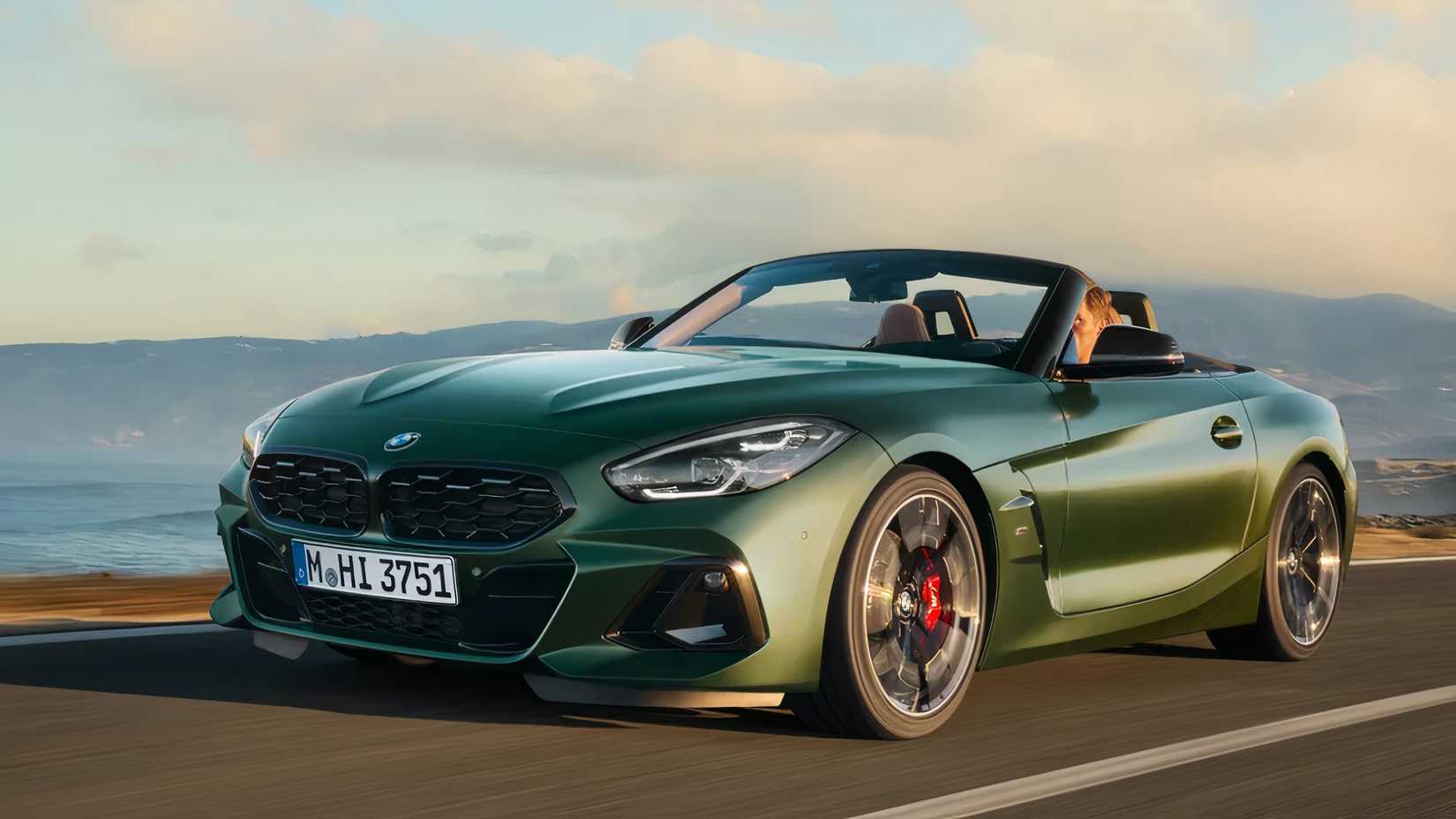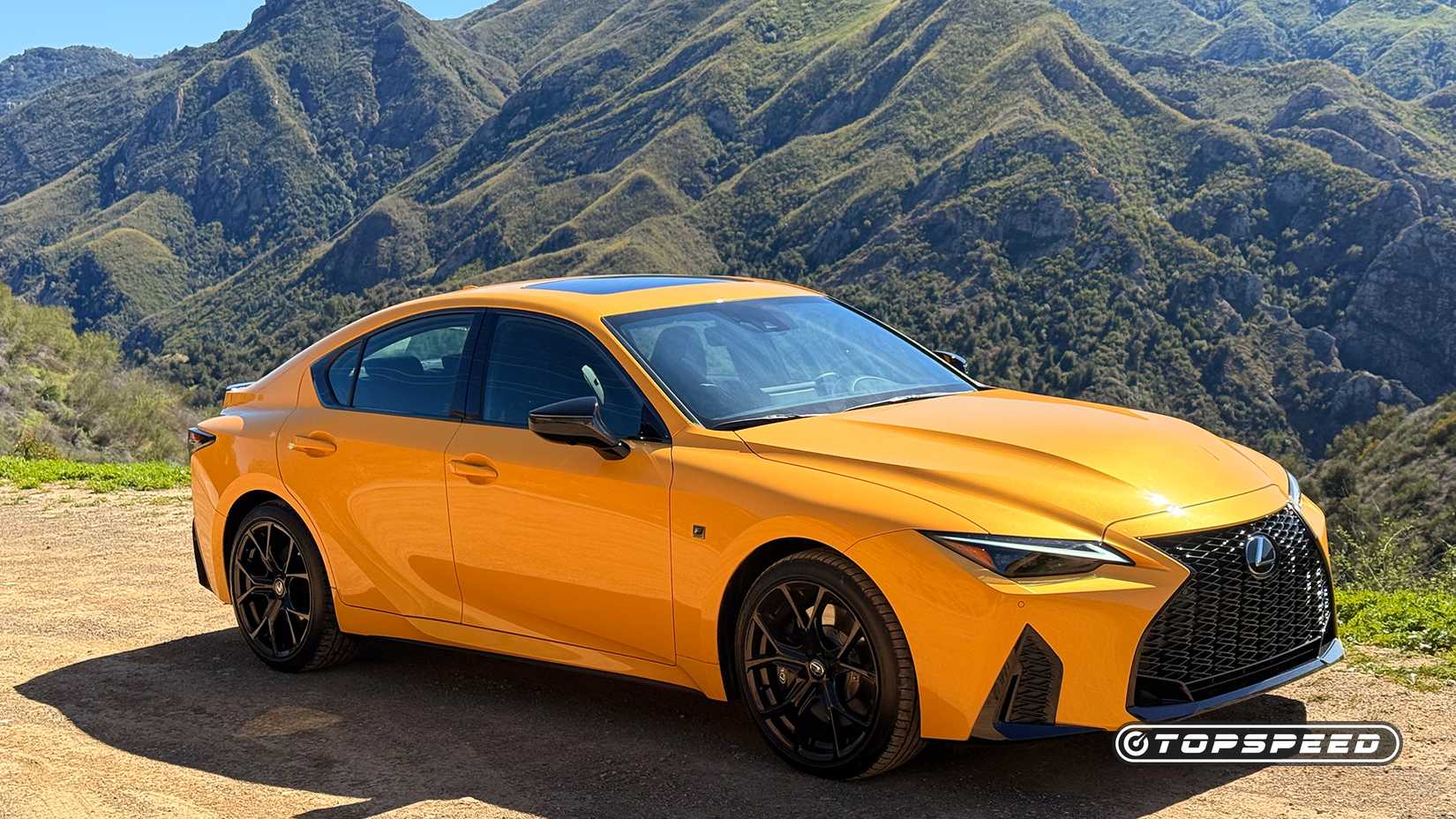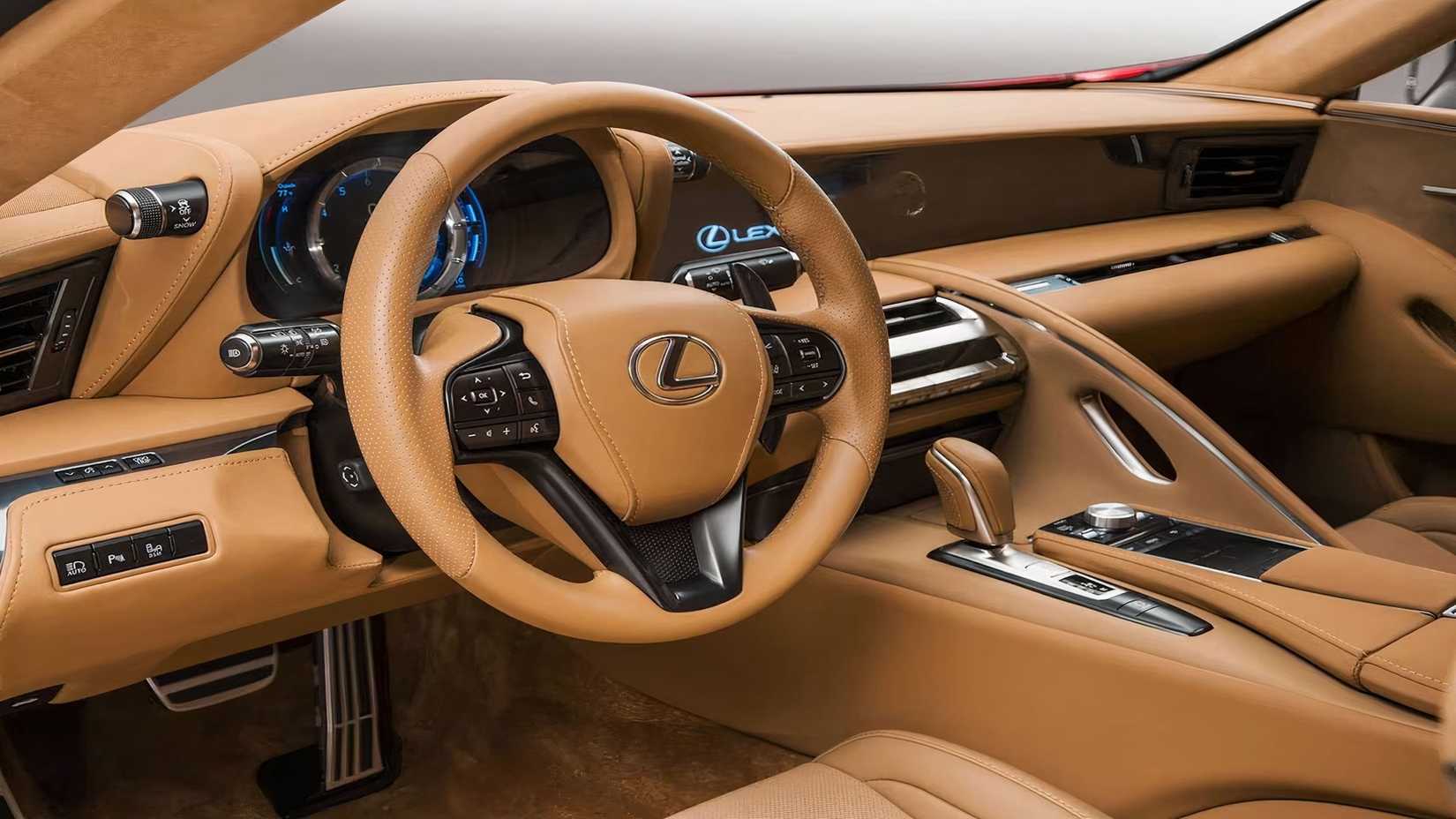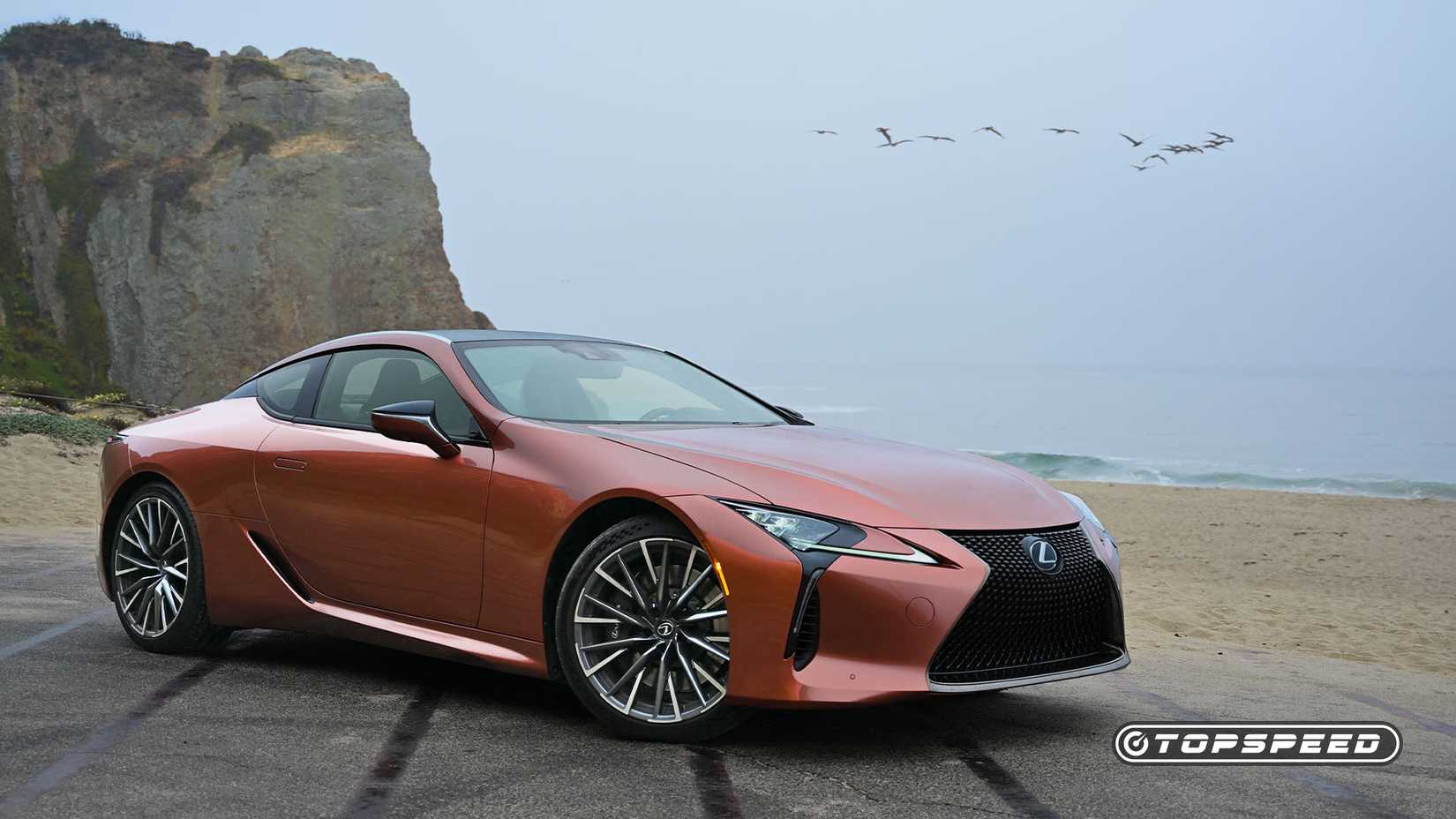Since Lexus leaped out of the gates back in the early 1990s with their first sports car model, the SC 400, they have pitted themselves against a very staunch and worthy competition in the shape of some of the most illustrious German marques. German brands are up there with the most respected on earth; you’ve got Audi, BMW, Mercedes, AMG, and Porsche all turning out some of the best performance cars to ever grace the road, and many argue that they are very hard to compete with. But, what about Lexus?
Over the last couple of decades, the luxury Japanese brand has created some epic sports cars, like the Lexus LC 500, the legendary Lexus LFA, and the IS F. None of these models should be dismissed in the face of their German rivals, but is it worth buying a Lexus sports car over a German one? We are going to take a look into it.
In order to give you the most up-to-date and accurate information possible, the data used to compile this article was sourced from various manufacturer websites and other authoritative sources, including Car Edge, and RepairPal.
How German Sports Cars And Lexus Sports Cars Stack Up
Firstly, we know that whether you buy a Lexus over a German sports car or vice versa is down to personal preference. There are die-hard fans on both sides of the argument that will never be swayed, but we are going to take a look into the figures and stats that may help settle some of the argument about which are better; Lexus sports cars or their athletic German rivals.
You do get a lot of track-ready prowess from models like the LFA, the IS F, and even the RC F, but even they can be seen as slightly more refined or ‘holding back’ compared to some of the sheer performance madness that BMW M, the RS team, and AMG can produce.
Sports cars-wise, power and speed will be one of the first things you consider, and while German brands like Porsche, AMG, and BMW are famous for some incredibly powerful models, Lexus (in some capacities) kicks out the horses.
Power And Acceleration: Can Lexus Keep Up?
Models like the 2025 BMW M3 come equipped with a 3.0-liter turbocharged mill that is good for 473 horsepower and 0–60 times of roughly 3.8 seconds; similarly, models like the Audi S4’s 3.0-liter V6 can shift out 349 horsepower and accelerate to 60 in around 4.4 seconds. A fair comparison from Lexus’ arsenal would be the IS F 500 F Sport Performance, which boasts a 472-horsepower naturally aspirated V8.
While you get the arguably more visceral feel from the Lexus NA V8 and similar power figures, there is no escaping the fact that its 4.5-second rest-to-60 mph time is slightly lacking in comparison. The comparable German rivals are on top for this one. This is also the case when we look at the most powerful road-going models that both Lexus and German brands have turned out.
|
Spec |
Most Powerful Lexus Sports Car |
Most Powerful German Sports Car |
|---|---|---|
|
Model |
Lexus LFA |
Brabus Rocket GTS |
|
Engine |
4.8-Liter V10 |
4.4-Liter Bi-Turbo V8 Plug-In Hybrid |
|
Transmission |
Six-Speed Automated Manual |
Nine-Speed Automatic |
|
Horsepower |
553 Horsepower |
986 Horsepower |
|
Torque |
354 LB-FT |
1,342 LB-FT |
|
Driveline |
Rear-Wheel Drive |
All-Wheel Drive |
|
0-60 MPH |
3.6 Seconds |
2.6 Seconds |
|
Top Speed |
202 MPH |
211 MPH |
We know that it might not be the fairest comparison because the Brabus is a custom-made beast, but it is based on the Mercedes-AMG GT 63 S E Performance, which itself boasts a 805-horsepower/1,047-pound-foot bi-turbo V8. Even though the LFA is one of the most iconic Japanese sports cars ever created, there is no arguing with the outright power and speed that is offered by some of the most insane German creations.
Handling And Agility: German Precision Vs. Lexus Innovation
Also regarded as one of the best-handling Lexus sports cars ever created, the Lexus LFA is renowned for its hands-on, engaging feel. You get a carbon fiber monocoque chassis, a double wishbone front suspension setup and a multi-link one in the rear, a low ride height (4.3-inch ground clearance), near perfect weight-distribution, and an electric power-assisted rack-and-pinion steering setup that is dialed in with a 14.3:1 gear ratio.
While it undoubtedly offers an old-school feel and proper driving engagement, BMW models like the 2025 BMW Z4 M40i do come equipped with adaptive M suspension that reacts to how you are driving and rear-wheel-drive, combined with the long hood and short deck, which provides a lot of fun in the twisties. You also get an M Sport differential that shores up traction and stability at speed. The question here is if brands like BMW add too much tech to their models to create an agile feel or if the more old-school setups are better for you as the driver.
Lexus is by no means behind in terms of handling and suspension tech that create a techy yet fun ride. Older sporty models, like the 2015 Lexus IS F, boast an adaptive variable suspension system, different drive modes, variable gear ratio steering, and Vehicle Dynamics Integrated Management (VDIM), which takes care of traction and stability control.
But, especially in newer models of German sports cars from the M Division and AMG, we are seeing that everything is being designed around ultra-precision engineering, arguably over driver feel. German sports cars are increasingly relying on electronic nannies to get the most out of what their engines can offer, arguably making them feel less ‘raw’. With certain Lexus sports cars, like the “F Cars,” you can still get a real engaging feel.
We know it is down to personal preference whether you want a car that is easy to drive and has a powerful engine or a car that can strike a balance between usable power and a more hands-on feel. It seems, though, that some Lexus sports cars may be a better choice if you want a bit of both.
Style Showdown: Comfort, Tech, And Looks
In certain German sports models, interior design shifts toward athletic luxury over cozy, dare we say, classy luxury. Yes, models like the 2025 BMW 5 Series come equipped with a sleek cabin with premium upholstery options, open-pore or aluminum wood trim, a flat-bottom steering wheel, and ventilated, standard-fit sport front seats, which, of course, is very alluring if you want a blend of athleticism and a touch of luxury. But what about if you are looking for a sporty car which has a truly luxurious feel to it?
Models like the LC 500, which is still very athletic-feeling, come equipped with hand-stitched leather, Alcantara door panels, magnesium paddle shifts, and brushed aluminum trim with Takumi Master-level attention to detail. It is the craftsmanship in a lot of Lexus models that is very hard to beat, even by some of the most luxurious German brands.
Stereotypically, the cabins of German sports cars are aimed more towards showing off their sporty prowess, which includes a greater dedication to the sports tech they add as well.
In models like the Porsche 911 GT3, an advanced cockpit takes center stage, which includes an analog speedo, which gives you a sense that you are in a proper old-school-feeling sports car when you peer down at it; you can choose to add adaptive sports seats, and you get the Sport Chrono package, which includes a lap stopwatch, drive mode dial, and Launch Control. You also get the Porsche Track Precision App (as part of the Sport Chrono package), which utilizes the 911’s sensors and GPS to track lap times and sector splits, steering angle and G-forces, tire and engine data, and speed, gear position, and throttle pressure.
You can still get some Lexus sports car models with athletic cabin tech; the Lexus RC F boasts a digital TFT display inspired by the LFA’s cluster, and G-force and performance readouts. But, the big difference is that Lexus models tend to be designed with a focus more on luxury cabin tech, in the shape of high-end sound systems and comfort features, over the track-orientated tech that you find in a lot of modern Porsche models.
Sleek Lexus Vs. Iconic German Design
While both German sports cars and Lexus models exude performance at a standstill, there is a subtle difference between how both are designed.
Models like the LC 500 boast a sculptural kind of elegance. Its long hood, sweeping roofline, and wide fenders give a grand-touring presence, while the massive spindle grille up front integrates nicely, but also makes it stand out as a “very Lexus” model. Angular headlights and flowing bumper lines complete the body and make the exterior design look very intentional, and like we see with a lot of Lexus models, very thought out.
In comparison, something like the new BMW M4 looks a lot more aggressive and muscular. It boasts the squared-off iconic kidney grille, pronounced wheel arches, and chiseled body lines which show other sports coupes that it is meant for business. We tend not to see many aggressive-looking Lexus sports cars, but the list of mean-looking German machines is almost endless.
Both Lexus sports cars and their German rivals are renowned for their style, with Lexus models boasting a calm yet sweeping flare about them, while models from the likes of BMW boast a more in-your-face, ready-to-rumble look. Both look the part for sports cars; this one, though (between Lexus and BMW at least), is down to whether you want an aggressive-looking machine or one that looks a bit more elegant parked up.
Down To Annual Bills: Cost, Reliability, And Resale
In terms of costs and reliability, you’d probably expect Lexus to wipe the floor with its German rivals due to their renowned reliability history and German brands cultivating a high-maintenance reputation for themselves. It is not as clean cut as you may think, though.
Lexus Vs. The Germans: Which Holds Their Value Better?
While Lexus does boast an undeniable reputation for producing cars that hold their value, it is Audi, who are currently leading the luxury brands with the best resale value. According to Car Edge, Audi models boast an average 5-year resale value of 54.4% while Lexus is in second place with an average 5-year resale value of 54.1%.
Of course, this is model-range wide and includes the brands’ SUVs as well. But, maybe surprisingly, up against some Audi sports models, Lexus models are not doing as well in terms of value retention.
- Lexus LC 500. Average 5-Year Depreciation: 48%.
- Lexus IS 500. Average 5-Year Depreciation: 48%.
- Lexus LS 500. Average 5-Year Depreciation: 52%.
- Audi RS 3. Average 5-Year Depreciation: 47%.
- Audi RS 7 Sportback. Average 5-Year Depreciation: 43%.
- Audi RS 6 Avant. Average 5-Year Depreciation: 32%.
In terms of the RS range, this could be because they are a lot more exclusive than a lot of Lexus models, and collectors will certainly be looking to watch the value of them go up in the coming years. Both BMW and Mercedes-Benz are also included in the top 10 luxury brands that hold their value the best, with average 5-year resale values of 50.7% and 48.6%, respectively. So, up against some Lexus sports cars, they aren’t holding their value as tightly, but it is close.
- Mercedes-Benz CLE 300. Average 5-Year Depreciation: 52%.
- BMW M340i. Average 5-Year Depreciation: 49%.
- Mercedes-AMG GT 43. Average 5-Year Depreciation: 48%.
Lexus Dependability Vs. German Engineering
When it comes to reliability, Lexus models tend to be more dependable. According to RepairPal, it will cost you, on average, $551 a year to maintain a Lexus model. For a Mercedes-Benz, $908 a year; for a BMW, it will cost you $968 a year; for an Audi, $987 a year; and for a Porsche, $1,192 a year.
This can be explained by the parts being famously more expensive for German models and higher-performance parts and engines being utilized, alongside typically higher labor costs, and more frequent trips to the garage. But, thanks to Lexus being Toyota’s luxury arm, it can also be down to the build quality and arguably more-stringent quality control in their factories.
According to the Initial Quality Survey, Lexus is rated as the brand that offers models with the fewest problems per 100 vehicles (PP100), with a score of 140 PP100. The market average is 202 PP100. Porsche and BMW do very well here as well, with a reported 186 PP100 and 189 PP100 each, but brands like Mercedes and Audi don’t do as well. Mercedes has a reported 243 PP100 while Audi fares a lot worse, with 273 PP100.
We, of course, see foibles in individual models of both Lexus sports cars and German sports cars, but Lexus has carved out a very dependable reputation. This is especially true in terms of powertrains, with Lexus’ 2UR-GSE V8 reigning as one of their most solid yet still gutsy engines. While some high-powered AMG engines are hand-built to ultra-German precision, there have been anecdotal reports of electrical bugs that hinder some of their prowess.
TopSpeed’s Verdict
Whether you choose to buy a Lexus sports car or a German sports car is always going to be down to personal preference. We do tend to see Lexus models cheaper off the forecourt compared to the starting prices of some German sports; that can be put down to the image and bravado alongside the aggressive performance that some models have going for them. But, in terms of long-term reliability, running costs, and resale value combined, the scales do tip towards Lexus sports cars. If you buy something like a limited edition or final edition, from either Lexus or any German brand, though, resale value can vary greatly depending on what you have and what is popular at the time.
German marques like BMW, Audi, Porsche, and Mercedes-Benz all carry a lot of weight behind their badges; they are well-known, they are very recognizable, they are renowned for what they are good at, and they boast an illustrious image which Lexus hasn’t quite got to yet, despite how good they can be. As we have mentioned, you tend to get more German cars that look aggressively potent compared to what Lexus turns out, but that doesn’t mean they should be overlooked.
You do get a lot of track-ready prowess from models like the LFA, the IS F, and even the RC F, but even they can be seen as slightly more refined or ‘holding back’ compared to some of the sheer performance madness that BMW M, the RS team, and AMG can produce. It comes down to whether you want an arguably more elegant-looking sports car with a historically higher chance of lasting longer, or a more potent, street-fighting-looking machine that can boast top-tier, very high-tech track-ready engineering.













